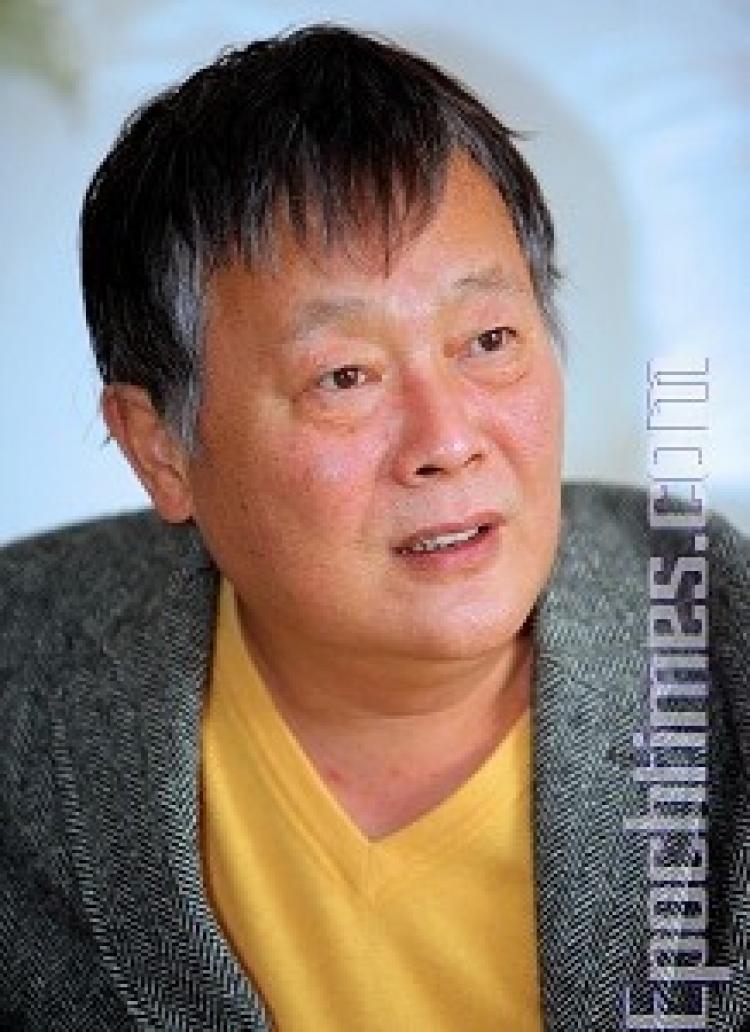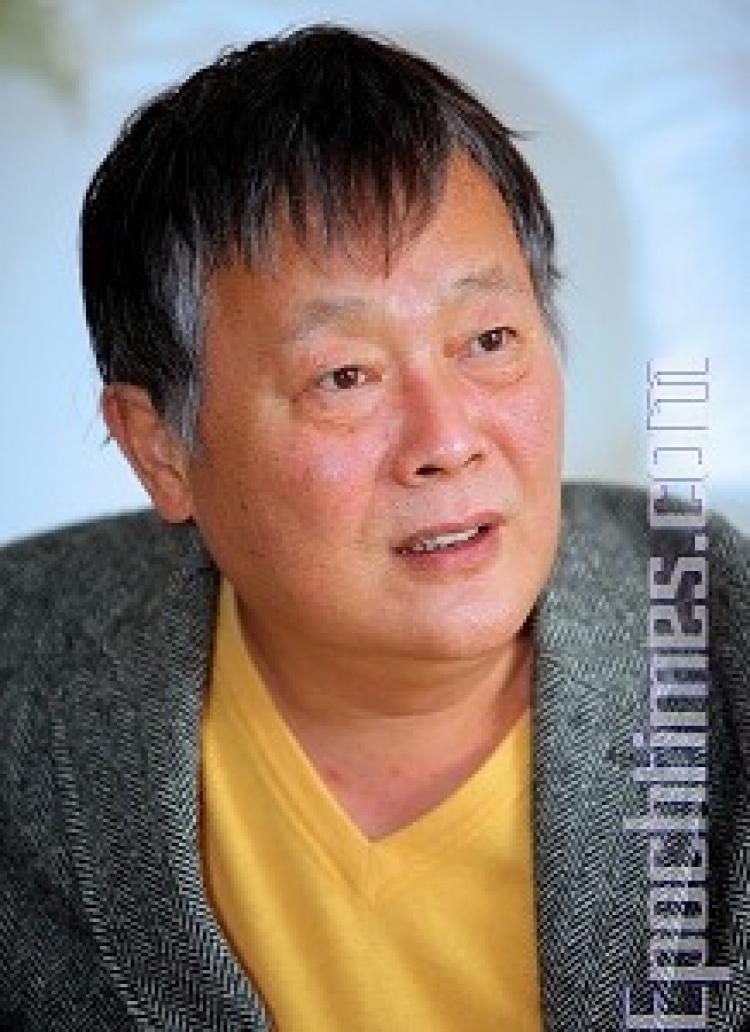MELBOURNE, Australia—Australia and China signed an unprecedented US$41 billion natural gas contract on Aug. 18 despite the two countries’ recent ructions over the Rio Tinto case and Uighur leader Rebiya Kadeer’s visit to Australia. The deal has sparked controversies in the government and among the public.
Mr. Wei Jingsheng, an activist who was imprisoned for 14 and a half years for promoting democracy in China is currently visiting Melbourne. He shared his insights with The Epoch Times on how the Australian Government should balance human rights issues and trade, how the Rio Tinto case may conclude, as well as the two countries’ future relations.
Wei laughed when asked about his view on the Rio Tinto case, “Everyone, including government officials or reporters, is asking about the Rio Tinto case. This is really a topic the Australians care about.”
“In the past when former Prime Minister John Howard was in charge, he did whatever the Chinese Communist regime asked him to do. He even approved the Chinese Embassy to illegally do repair work on some barricade rails to deter demonstrators. That was actually illegal. Sidewalks are government properties. What right do they have to block a sidewalk? It’s like degrading the Australia country’s integrity.”
“And finally the problem popped up, the Rio Tinto case. They can arrest you as they want, and they treated Australia as nothing. After they arrest you, they did not even show any evidence. It’s so obvious that they simply look down on you.”
“This should be a wakeup call to Australia after what happened to Rio Tinto. They should no longer do whatever the Chinese regime asks them to do. This is actually an important turning point, including granting a visa for Uighur leader Rebiya Kadeer. I think Prime Minister Kevin Rudd’s administration had hesitated about whether they should give her a visa, and eventually made the right decision. I think the Australian public is gradually awakening and recuperating the country’s dignity. Therefore, recently something major happened again. Seeing that Australia has toughened up, the Chinese Communist regime quickly placed a US$41 billion order to buy out Australia. The 41 billion dollar deal did not drop from the sky for nothing. It absolutely has something to do with what has happened recently,” Wei said.
Wei Jingsheng thinks that even though the purchasing list from the CCP would have the Australian government make choices between trade and human rights, the Australian government would not compromise on the human rights issue.
”The international society has realized the severity of this issue: you can’t violate my rights even if you purchased US$41 billion from me. Some former Prime Ministers of Australia have made mistakes such as ‘as long as I can make money, whatever you say is okay,’ and now it seems this is not working. As a country on the earth, if you don’t have dignity, and become a subordinate, that’s not acceptable to the Australian people. Therefore, the Sino-Australia relationship approached a turning point. After the Rio Tinto case and Rebiya Kadeer’s visit, I think the relationship between China and Australia will evolve: mutual respect will be enforced; Communist China will not take Australia for granted. China and Australia should be taking trade as trade and human rights issues as human rights issues. Australians have set human rights as a very important topic, you can’t give up human rights for trade. The time for trade over human rights has passed,” Wei said.
When answering the question about how the Chinese communist regime would conclude the Rio Tinto case, Mr. Wei said confidently: “You don’t have to worry about that, that regime will find a way out for themselves.” “Stern Hu’s case has been toned down. First it was ‘spying,’ then it was ’stealing state secrets,’ after that it was ’stealing classified information.’ A few days ago it was again downplayed to ‘improperly obtaining classified business information.’ That means the regime is looking for an excuse to get down.
“The previous policy of the Australian government misled the CCP. It made it look as though the Australian Government would trade human rights for business, and trade dignity for business, but in fact the Australian public won’t accept it. It is also a bad move for the Chinese Communist regime, so now it has to look for way out,” Wei said.
As a prominent figure in the Chinese dissident community, Wei also commented about his own role: “All I have done in these past years is to motivate the international community to focus on China, to find out what the CCP had been plotting, what it is going to do. We then go break its plan. That is what the Communist regime fears the most.”
Mr. Wei Jingsheng, an activist who was imprisoned for 14 and a half years for promoting democracy in China is currently visiting Melbourne. He shared his insights with The Epoch Times on how the Australian Government should balance human rights issues and trade, how the Rio Tinto case may conclude, as well as the two countries’ future relations.
‘Rio case caused by compromise’
Wei laughed when asked about his view on the Rio Tinto case, “Everyone, including government officials or reporters, is asking about the Rio Tinto case. This is really a topic the Australians care about.”
“In the past when former Prime Minister John Howard was in charge, he did whatever the Chinese Communist regime asked him to do. He even approved the Chinese Embassy to illegally do repair work on some barricade rails to deter demonstrators. That was actually illegal. Sidewalks are government properties. What right do they have to block a sidewalk? It’s like degrading the Australia country’s integrity.”
“And finally the problem popped up, the Rio Tinto case. They can arrest you as they want, and they treated Australia as nothing. After they arrest you, they did not even show any evidence. It’s so obvious that they simply look down on you.”
“This should be a wakeup call to Australia after what happened to Rio Tinto. They should no longer do whatever the Chinese regime asks them to do. This is actually an important turning point, including granting a visa for Uighur leader Rebiya Kadeer. I think Prime Minister Kevin Rudd’s administration had hesitated about whether they should give her a visa, and eventually made the right decision. I think the Australian public is gradually awakening and recuperating the country’s dignity. Therefore, recently something major happened again. Seeing that Australia has toughened up, the Chinese Communist regime quickly placed a US$41 billion order to buy out Australia. The 41 billion dollar deal did not drop from the sky for nothing. It absolutely has something to do with what has happened recently,” Wei said.
‘The time for trade before human rights has passed’
Wei Jingsheng thinks that even though the purchasing list from the CCP would have the Australian government make choices between trade and human rights, the Australian government would not compromise on the human rights issue.
”The international society has realized the severity of this issue: you can’t violate my rights even if you purchased US$41 billion from me. Some former Prime Ministers of Australia have made mistakes such as ‘as long as I can make money, whatever you say is okay,’ and now it seems this is not working. As a country on the earth, if you don’t have dignity, and become a subordinate, that’s not acceptable to the Australian people. Therefore, the Sino-Australia relationship approached a turning point. After the Rio Tinto case and Rebiya Kadeer’s visit, I think the relationship between China and Australia will evolve: mutual respect will be enforced; Communist China will not take Australia for granted. China and Australia should be taking trade as trade and human rights issues as human rights issues. Australians have set human rights as a very important topic, you can’t give up human rights for trade. The time for trade over human rights has passed,” Wei said.
‘Communist regime looks for a way out’
When answering the question about how the Chinese communist regime would conclude the Rio Tinto case, Mr. Wei said confidently: “You don’t have to worry about that, that regime will find a way out for themselves.” “Stern Hu’s case has been toned down. First it was ‘spying,’ then it was ’stealing state secrets,’ after that it was ’stealing classified information.’ A few days ago it was again downplayed to ‘improperly obtaining classified business information.’ That means the regime is looking for an excuse to get down.
“The previous policy of the Australian government misled the CCP. It made it look as though the Australian Government would trade human rights for business, and trade dignity for business, but in fact the Australian public won’t accept it. It is also a bad move for the Chinese Communist regime, so now it has to look for way out,” Wei said.
As a prominent figure in the Chinese dissident community, Wei also commented about his own role: “All I have done in these past years is to motivate the international community to focus on China, to find out what the CCP had been plotting, what it is going to do. We then go break its plan. That is what the Communist regime fears the most.”
Read original Chinese article







